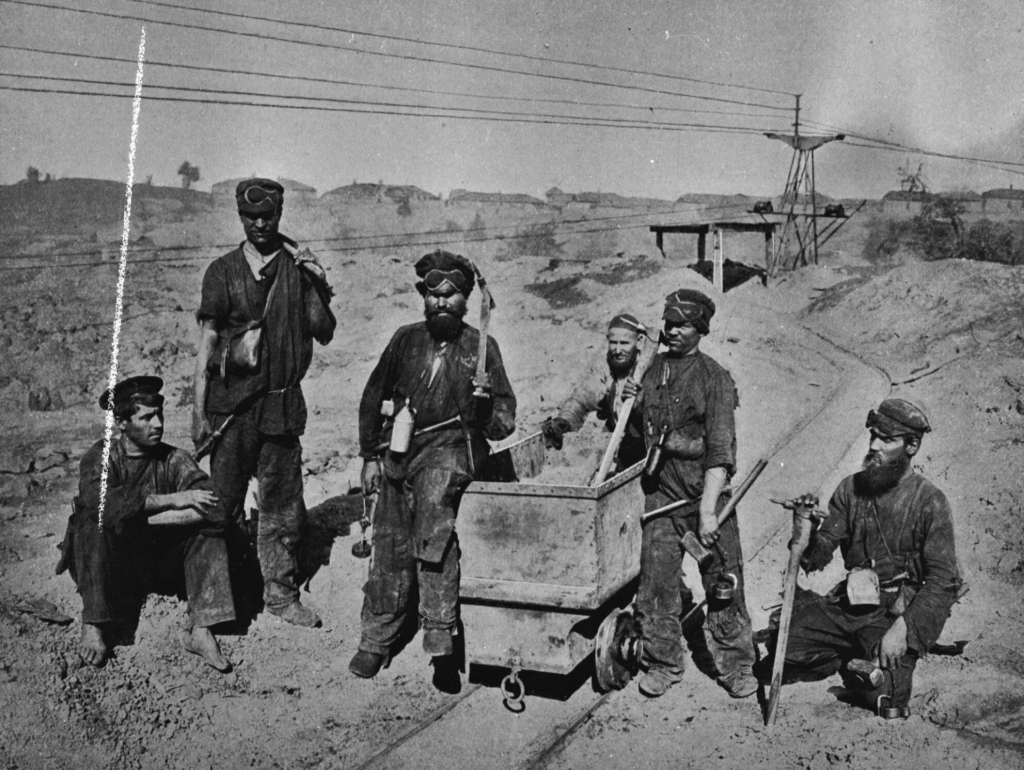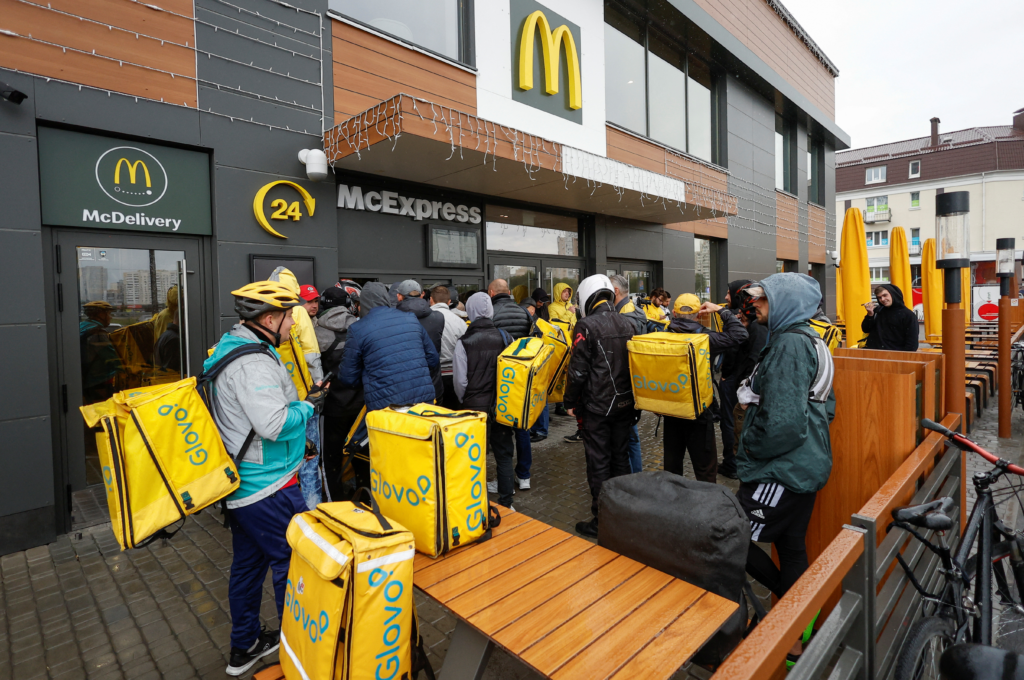Ukraine’s economy is not exactly in the best place right now, but you may be surprised at how day-to-day life in much of Ukraine does, to an extent, function. Let’s start with a brief overview of the main aspects of it.
Ukraine’s economy has been for the longest time based on its fertile black soil in addition to other natural resources in the east. Farming has been a prominent aspect of life here for millenia, and it cannot be overstated how it is the “breadbasket of Europe” or now, even beyond. Industry in the east has often been a major factor, and logging in the north were the traditional industries.


Tourism both internal and external plays major roles in the economies of cities such as Kyiv, Lviv and Odessa, in addition to less internationally but definitely nationally known cities such as Khamianets Podilsky, Uzhhorod, Chernivtsi, and more.
However, in recent years has been a major IT boom. The IT exports in fact are still growing. I came to the realisation this is a fantastic aspect of an economy for a country at threat of invasion, as it does not rely on physical location. The russians can capture and bomb fields or factories, but an IT company can move internally or abroad, yet still contribute to the Ukrainian economy by providing remote jobs, and paying taxes.
The IT sector does involve a lot of outsourcing, however, this is not to mean that poorly paid low level jobs are sent overseas. Rather, we have entire teams and companies developing products, and developers are paid good salaries, not just in Ukraine, but frankly, comfortably in much of Europe. Senior devs can earn around 6K a month, for example. Additionally, there are start-ups providing their own services, hardware companies, and many others, who may have clients all over the world. I have quite often heard people who don’t work in IT make jokes about those that do as “Oh, they work in IT, la dee dah”. The reality is of course for many service jobs, factory jobs, tourist jobs, and of course government jobs, the salaries are very low, and due to the rising UAH/USD rate, inflation, and job scarcity in some regions, It’s got even harder for many.

The State of the Ukrainian Economy
So, aside from IT, how is the economy doing? The statistics are a bit confusing too, with some predicting a loss of growth of GDP, whereas others downplay it. Look in this article:
“Maria Rеpko, deputy director of the Center for Economic Strategy, told about it during the discussion «Will the Ukrainian economy be able to grow in 2023?».
The main estimates of the consensus forecast in 2023 look like this:
- nominal GDP expectations are in the range of $152-161 billion, the average estimate is $155 billion;
- average annual inflation – 16.9-21%, average estimate – 18.9%;
- the average annual exchange rate of the hryvnia to the dollar is 36.6-39.5 UAH/dollar, the average estimate – 37.9 UAH/dollar;
- NBU reserves – $26.3-33 billion, average estimate – $29.5 billion;
- state budget deficit – $33.9-45.9 billion, average estimate – $40 billion;
- the need for foreign financial assistance is $37-43.2 billion, the average estimate – $40.2 billion.
The estimates are based on the assumption by half of those surveyed that the war will continue throughout the current year and end the hot phase in mid-to-late 2023. Also, all interviewees assume that the grain corridor will work during the current year.
The consensus forecast is based on the estimates of seven analytical teams, including Dragon Capital, ICU, Concorde Capital, Morgan Stanley, and others.
In turn, the deputy chairman of the National Bank of Ukraine Serhii Nikolaychuk reminded that in January the NBU worsened its forecast from 4% to 0.3%. At the same time, according to him, the situation in the first and second quarters of 2023 will be better than the NBU’s forecast, thanks to high stability and effective repairs in the Ukrainian energy sector, as well as warm weather.
The Ukrainian Deputy Minister of Economy Oleksiy Sobolev noted that the ministry estimates the GDP growth forecast at 1% (instead of 3.2% earlier) and improved the inflation forecast to 24% (28%). The estimates of the Ministry of Economy are based on the assumption that hostilities will last almost a whole year.”
But we see other indications of growth, for example, “Ukraine’s economy is projected to grow by 0.5% this year, following a staggering contraction of 29.2% in 2022, the year of Russia’s invasion of the country” this is according to the World Bank.
The growth is mostly pinned on the grain corridor and agricultural export. A huge part of Ukraine’s economy. Generally, it seems, compared to last year the economy is recovering, though we won’t likely see much growth. Considering a full scale war is on, I’d say that’s relatively decent.
My Experience
But how does it feel living day to day? Now, this massively varies from city to city. Take everything I saw here as subjective. In places like Mykolaiv, Kharkiv, Kherson, Dnipro, Zaporizhia, where the war has been very brutal, many industries were damaged, farmland mined, and many people are struggling to make ends meet the same way they did before.
In Kyiv, in Lviv, in Uzhhorod, things seem closer to normal. Winter was difficult for many businesses with power cuts on top of sirens disrupting their abilities to operate, however. Yet, not only are most places surviving, some businesses are thriving. It does depend somewhat on the business, but in my recent visit to Kyiv, there are plenty of shops, restaurants, bars etc still, busy, with people, living day-to-day life in that act of defiance.
I generally find Ukrainian service to be very good, even now. I wonder if it’s in part due to the relatively light degree of worker protections and regulations, ensuring workers remain in their jobs by doing the best possible service, or maybe it’s just hospitality. It is definitely generational though, with some older people from the communist era not exactly the most considerate of customer service sometimes. Still, I find much worse customer service in other parts of Eastern Europe than in Ukraine.
To speak of the customer service, let’s talk about McDonalds! Now, i’m very much a person who prefers to support local businesses, eat proper food, and yet sometimes junk food is appealing, and we don’t have a McDonald’s in Uzhhorod, so when I was in Kyiv the other week, I went there a couple of times. Both times I had to wait a whole 2 minutes for my food and they apologised and gave me a free drink coupon. They really wanted to make sure people were happy. A far cry from the McDonald’s experiences in the UK I have had.

Nonetheless, many workers are hired on the basis of them being Private Entrepreneurs, meaning they have little to no worker rights legally, though they may have contracts directly with companies to have certain obligations. I think it’s good in some ways to allow people to establish businesses and earn well, and pay little tax, especially as the salaried tax rate is eye watering so it means some tax is paid over none. However, I think lowering the main tax and giving a better choice in the type of contract, can give people the freedom to choose higher income or stability themselves. That’s a big topic though that I will write a paper about and more about here in the future.
Relatedly, there are some quite major supposedly pro-market reforms which many are worried about. Generally the intention is to move away from the hangovers of the Soviet system, however, some go beyond even the UK or USA in their deregulation or removal of labour rights, which I think, especially post-war, may not be the best decision. However, again, this is another topic.
In terms of supplies, I think people imagine there is strict rationing across the country. Now on this I can only comment on the west and Kyiv, I cannot comment on the situation in southern or eastern cities, however, so welcome any anecdotes about that. While last September and October, I found in Kyiv some goods were a bit scarce, generally, it’s normal, especially now. There’s plenty in the stores of most things now, though price fluctuations do hit. Tomatoes are quite expensive, in part due to attacks on agriculture in the south meaning there are only foreign-produced vegetables and fruit sometimes. For a while buckwheat and eggs became a luxury, with prices rivalling the UK! Yet it seems to have stabilised to an extent now, thankfully.
Now let’s consider the future.
The key challenge is obviously rebuilding the economy in the east and south. That goes without saying. This will cost a lot of money, and take years perhaps (though Ukraine is incredibly efficient, so perhaps not). Many people are devastated and their livelihoods destroyed, people without homes, there will be a decrease in the workforce from those who died of course. This could be difficult for a while. Could, though. As I said, Ukraine has learned how to efficiently recover already in many areas, and the processes are in place. With adequate support, we may see insane economic growth that goes way beyond its pre-war state. I hope so.
Another challenge will be the distribution of labour force. With many people going to the west of the country, or abroad, for safety and stability, this can leave a large degree of over-competition for jobs in some areas. Whereas others can struggle to retain workers due to the ever-changing situation with security. Ukraine did enact a law to allow for the easier hiring and firing of workers who immediately leave their residence so that employers are not liable to pay them if they quit last minute. This has come under criticism, and that’s another topic, but it indicates a problem for small businesses with staff retention in slightly more dangerous cities.
Will we see over-competition for jobs driving down wages? Will the Ukrainian state have to renege on some of its changes to protect workers? Will those who return from abroad bring different perspectives to Ukrainian labour practices? Will the economy recover and investment help Ukraine’s economy get to where it deserves? Its IT sector is still working well, though many companies are now abroad for the time being, and must remain at the forefront of the digitalisation and modernisation of the country. Time will tell, but I want to remain optimistic that Ukraine’s industrious people will not just recover but also transform and thrive.
Leave a Reply